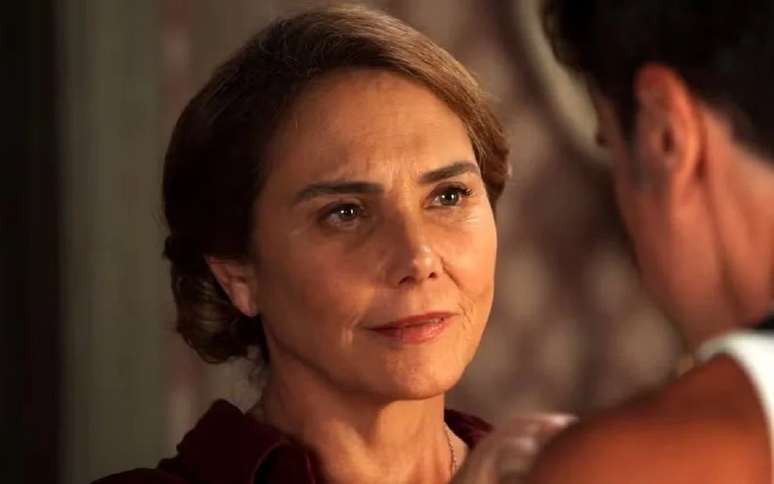The series makes it very clear that other races dislike elves and there is no shortage of reasons to justify this dislike.
or racism inside The Lord of the Rings: The rings of power it is not a topic present only in discussions and criticisms of the series. The theme, in fact, is present within the plot itself and personified in the figure of the elves themselves. As the first few episodes have already made clear, these people are not loved at all in Middle-earth and, in some cases, having a pointed ear can be synonymous with trouble.
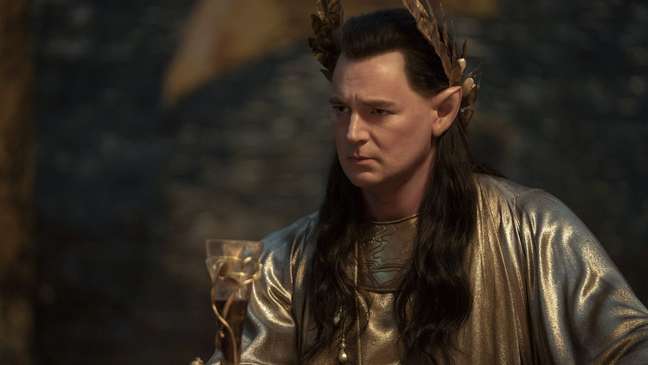
- Review The Rings of Power | A return on the right foot to Middle-earth
- Who is the stranger in The Lord of the Rings: The Rings of Power?
Examples of this discrimination abound. Galadriel (Morfydd Clark) tried to hide the traces of his race so as not to be dumped from the sunken raft when he was adrift at sea, Elrond (Robert Aramayo) received rather harsh treatment from the dwarves of Khaza-dûm and the people Southlands have already made it clear how much they hate Arondir (Ismael Cruz Cordova).
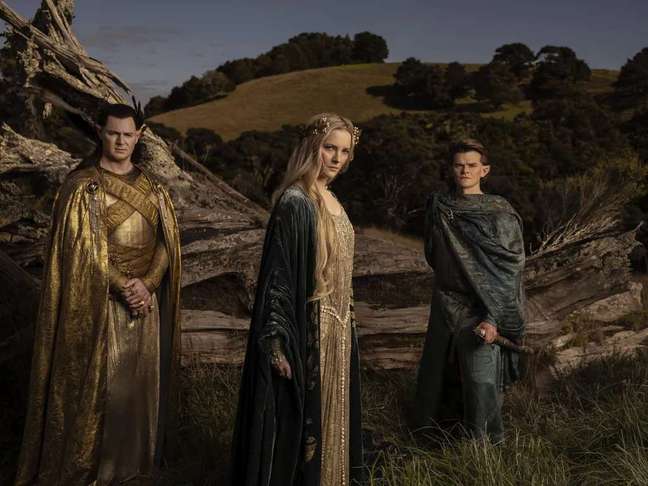
So there is no shortage of situations that show how the people of Middle-earth really hate elves. The big question is why. Since they are the protagonists of the entire Tolkien fiction, it is even strange to see a group of heroes so rejected by everyone wherever they go. The point is that, after all, there are good reasons for all of this.
Why does Middle-earth hate elves?
First of all, it is important to point out that elves are not from Middle-earth. Within Tolkien’s mythology, the race was created directly by the gods holy land of valinor – the equivalent of the Eden of this world. It’s that little story that Galadriel tells at the beginning of the first episode, with everyone living happily ever after in the far west of the world.
They go to Middle-earth only in the middle of the First Age after the evil Melkor Morgoth destroy the holy trees and steal the silmarils, jewels created by the elves with the essence of these divine lights. So they are none other than these strangers who came to a new world, fought a war and decided to stay there.
This explanation is crucial, as it already establishes some points that will reflect on how elves view other races and how the reverse is also true. Starting with the fact that they really are assholes.

You may have already noticed how proud elves, in general, are of their history and how much this translates into arrogance and even arrogance. This is a trait that has appeared timidly in the movies, but which is very evident in the series: they think they are so much better than any other race and they take it on everyone’s face.
Being of Valinor and created by the gods to share heaven with these deities, they feel superior to all the rabble living in Middle-earth. Not surprisingly, they treat all elven culture as superior and treat with contempt what other peoples do. Remember it Celebrimbor (Charles Edwards) had to be persuaded to call the dwarves during the creation of his forge.
This pride of the elves, in fact, is one of the reasons that made them stay in this world after the war with Morgoth. This is not detailed in the series, but the books explain that they became so obsessed and concerned about their attained status that they preferred to remain among mortals rather than return to the gods.
always at the top
The main point of this is in immortality itself. Since they don’t die of natural causes and don’t even age, elves consider all other races around them to be inferior and mundane. After all, how can humans and dwarves be taken seriously when they live such short lives? What can someone relevant do in a measly 80 years?
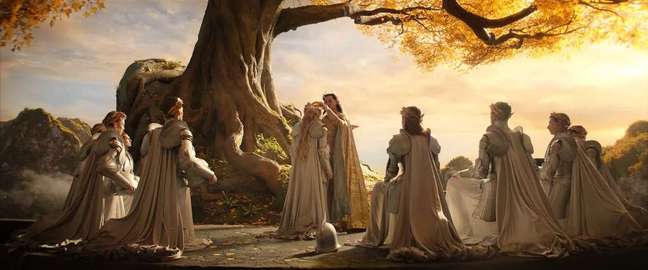
This conflict is hinted at in Elrond’s reunion with Prince Durin (Owain Arthur), when the dwarf shows annoyance that the elf has been ignoring that friendship for two decades and, after so long, arrives as if it’s nothing. .
However, this aspect is even more evident within the core of Númenor, where this persecution and annoyance with the elves is much more open. In the fifth episode of the season, there’s a whole rant from the human population about how the fact that elves don’t age makes them dangerous to their very existence. How to compete with those who do not die, do not get tired and do not feel the weight of age? For them, distancing is a matter of survival.
Arrogance and elven memory
Furthermore, the fact that they are immortal also causes elves to have a beautiful memory, which is terrible in relation to other peoples. Living for centuries, they have been witnesses of history, they have seen the mistakes that other peoples have committed and are eager not to make future generations forget them.
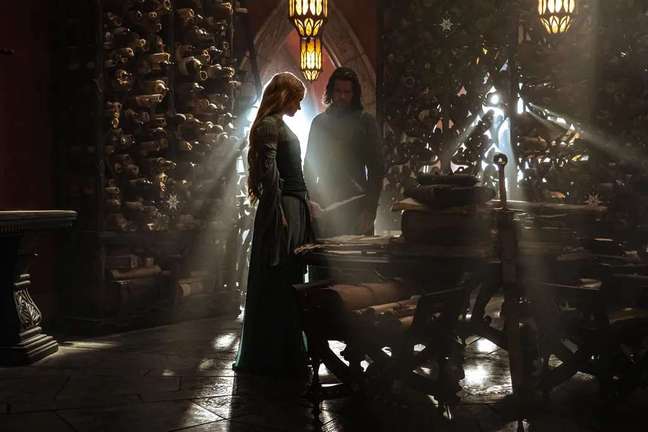
During the war with Melkor, at the end of the First Age, part of the humans fought against the Dark Lord. Except that it was centuries before the history of the series began, still in the mists of time and long before anyone thought they were born there. Yet the elves seem to enjoy remembering that their ancestors fought on the wrong side of the conflict.
That’s why there is a watchtower in the Southern Lands and why elves like Arrondir keep an eye on the villages and towns of this region. Due to a bad choice made there, the elves continue to treat all humans as guilty and inferior, including those who have no idea who Melkor Morgoth or Sauron are.
Trend on Canaltech:
- Find out which Samsung phones should receive Android 13 in 2022
- Microsoft’s Chief Technology Officer calls for an end to the use of C and C ++ in new projects
- What was the War of Arms and why will it become a Disney + series?
- Criminals use a new method to bypass two-step authentication
- Why doesn’t Gen Z like the Python programming language?
+The best content in your email for free. Choose your favorite Earth Newsletter. Click here!
Source: Terra
Emily Jhon is a product and service reviewer at Gossipify, known for her honest evaluations and thorough analysis. With a background in marketing and consumer research, she offers valuable insights to readers. She has been writing for Gossipify for several years and has a degree in Marketing and Consumer Research from the University of Oxford.


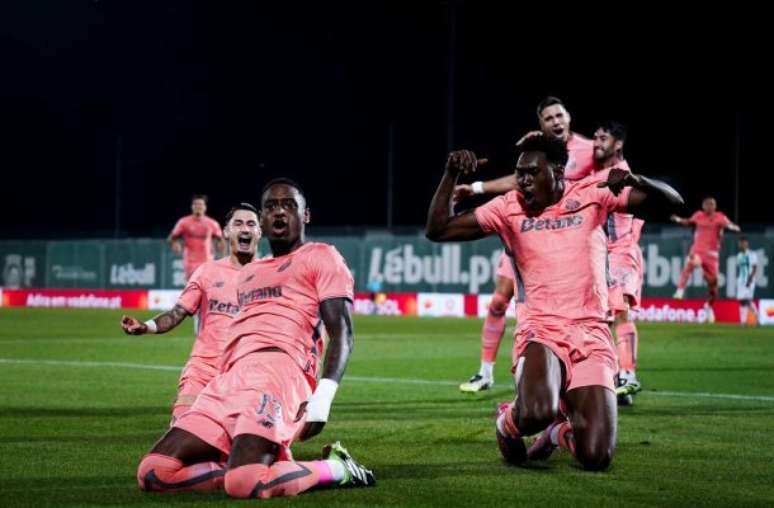
![New Day ahead: What awaits you in the episode 61 Monday, September 22, 2025 [SPOILERS] New Day ahead: What awaits you in the episode 61 Monday, September 22, 2025 [SPOILERS]](https://fr.web.img5.acsta.net/img/35/4e/354e676d46c01933cb49f6ee20dd860b.jpg)
